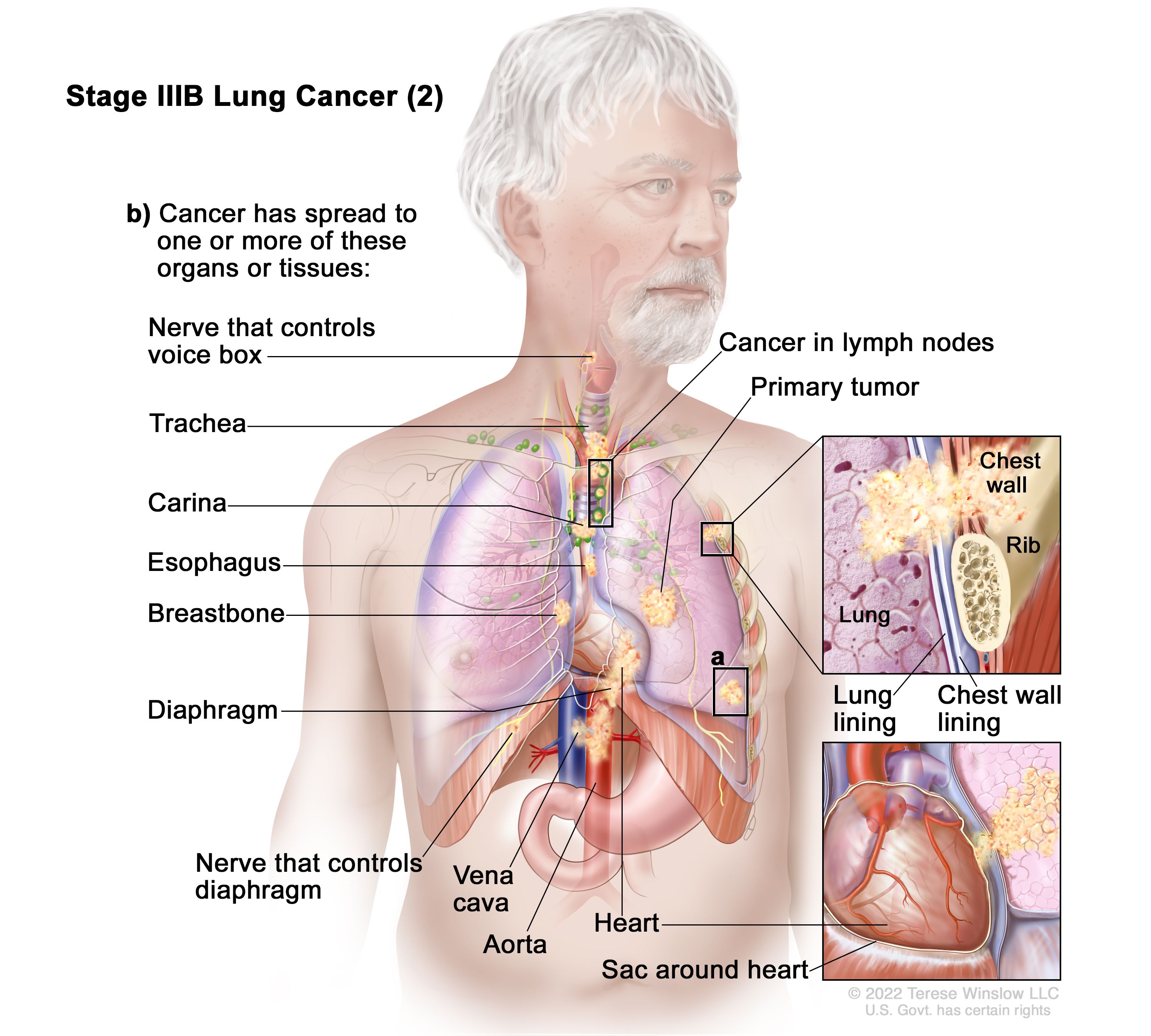PET or PET-CT scans. Useful tests for staging lung cancer.
 Definition Of Stage Iiib Non Small Cell Lung Cancer Nci Dictionary Of Cancer Terms National Cancer Institute
Definition Of Stage Iiib Non Small Cell Lung Cancer Nci Dictionary Of Cancer Terms National Cancer Institute
Breast Cancer Survival Stomach Cancer Survival Lung Cancer Survival Prostate Cancer Survival.

Throat and lung cancer survival rate. 5 years of survival in the first cases is more than 90. And having bone metastasis as well as other sites were found to reduce survival rates. Hypopharyngeal - 5 year relative survival rate.
Among the most critical stage is the stage 4. According to the American Lung Association ALA lung cancer is the leading cause of death among people with cancer accounting for 25 of all cancer fatalities. The stage of your lung cancer at diagnosis which refers to the extent of cancer in the body determines treatment options and strongly influences the length of survival.
Many other factors may affect the prospects of individuals such as their overall health status and how cancer responds to. Stages III-IV 5-year survival varies from about 6-24 with stage IV having the lowest 5-year survival rate. Five-year relative survival rates for types of throat cancer Oral cavity and pharynx cancer.
The most common tests to stage lung cancer include. For all NSLC stages combined the 5-year relative survival rate is about 25 percent. The most common types of primary cancer with bone metastasis are prostate 34 breast 22 and lung 20.
371 of males survive lung cancer for at least one year. Although not in your throat your thyroid is a gland located in the. The survival rate for lung cancer can vary.
Stage I 53 stage II 39 stage III 36 stage IV 24 Survival rates are based on the results of a large number of people who have suffered from the disease but they cannot predict the situation of single people. The SEER database maintained by the National Cancer Institute NCI tracks 5-year relative survival rates for non-small cell lung cancer NSCLC and small cell lung cancer SCLC in the. Around 65 out of every 100 around 65 will survive their cancer for 5 years or more after diagnosis around 55 out of every 100 around 55 will survive their cancer for 10 years or more after they are diagnosed Where this information comes from.
The early cancer of the throat detected incidentally is associated with a good prognosis. Lung cancer spread to bones life expectancy - One source the BMJ stated that 17251 patients with bone metastasis. Under this cancer four stages can be classified.
2 Useful Tests For Staging Lung Cancer. One year survival after diagnosis of bone metastasis was the lowest in patients with lung cancer. Breast cancer has the highest survival rate in 1 year after bone metastasis 51.
In advanced throat cancer this decreases to less than 20. Survival Rates for Lung Cancer. For all SCLC stages combined the 5-year relative survival rate.
Most types have a 5-year survival rate in stage I andor II that range from about 53-64 except for those that occur in the glottis the part of the larynx including the vocal cords which is about 74-90. This falls to 138 surviving for five years or more as shown by age-standardised net survival for patients diagnosed with lung cancer during 2013-2017 in England. Survival Rate Prognosis Stages 1-5 Limited vs.
In addition the causal factors associated with throat cancer mainly smoking and alcohol make. Five-year survival rates vary somewhat with the location of the cancer and its stage see below. The larynx is an organ that houses the vocal cords and the epiglottis which stops food from entering.
The involvement of lymph nodes in the region is associated with a prognosis of poorer throat cancer. Throat cancer survival rate may differ depending on the stages. Staging is done by analyzing the results of different imaging tests and biopsies.
They state that the overall 5-year. One- five- and ten-year survival for lung cancer. Doctors use a PET scan to identify malignant lymph nodes and metastases around.